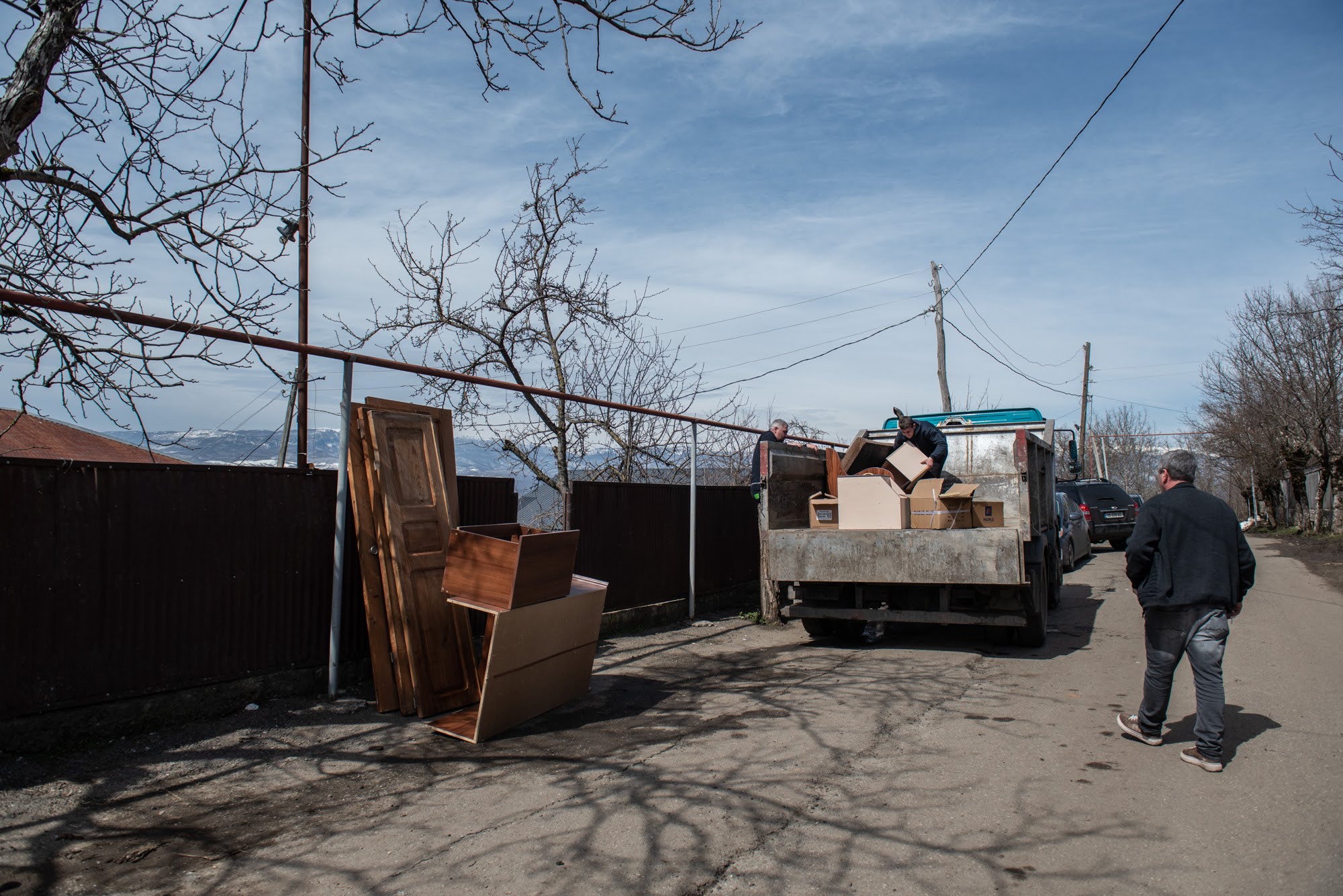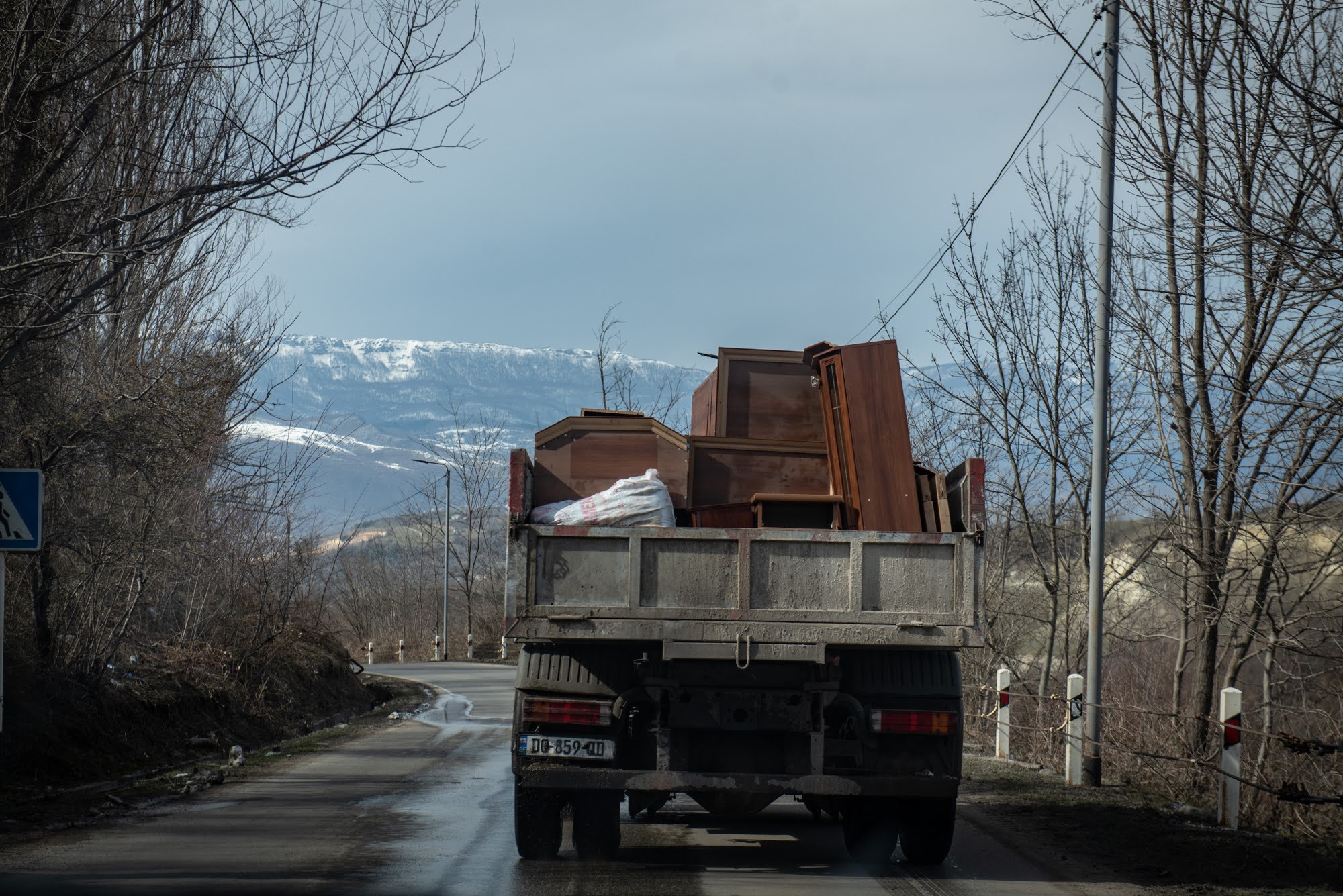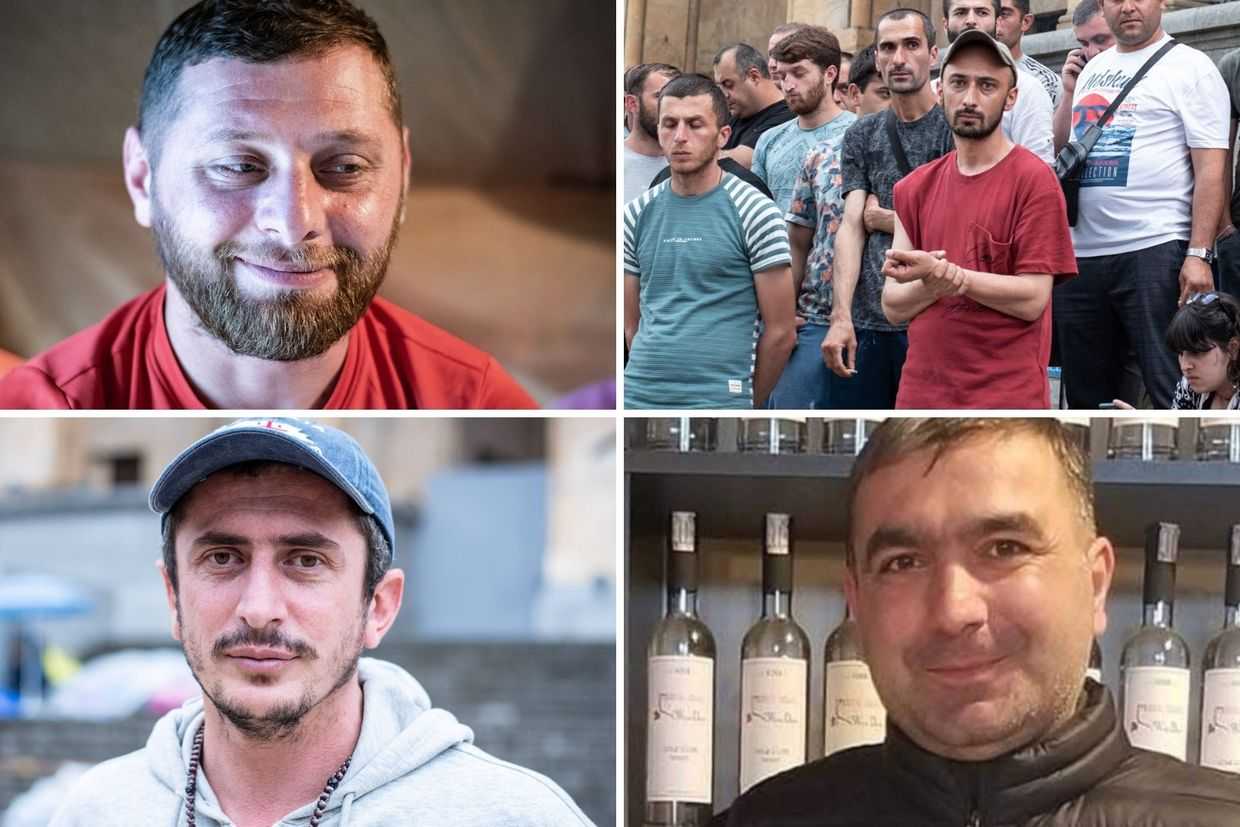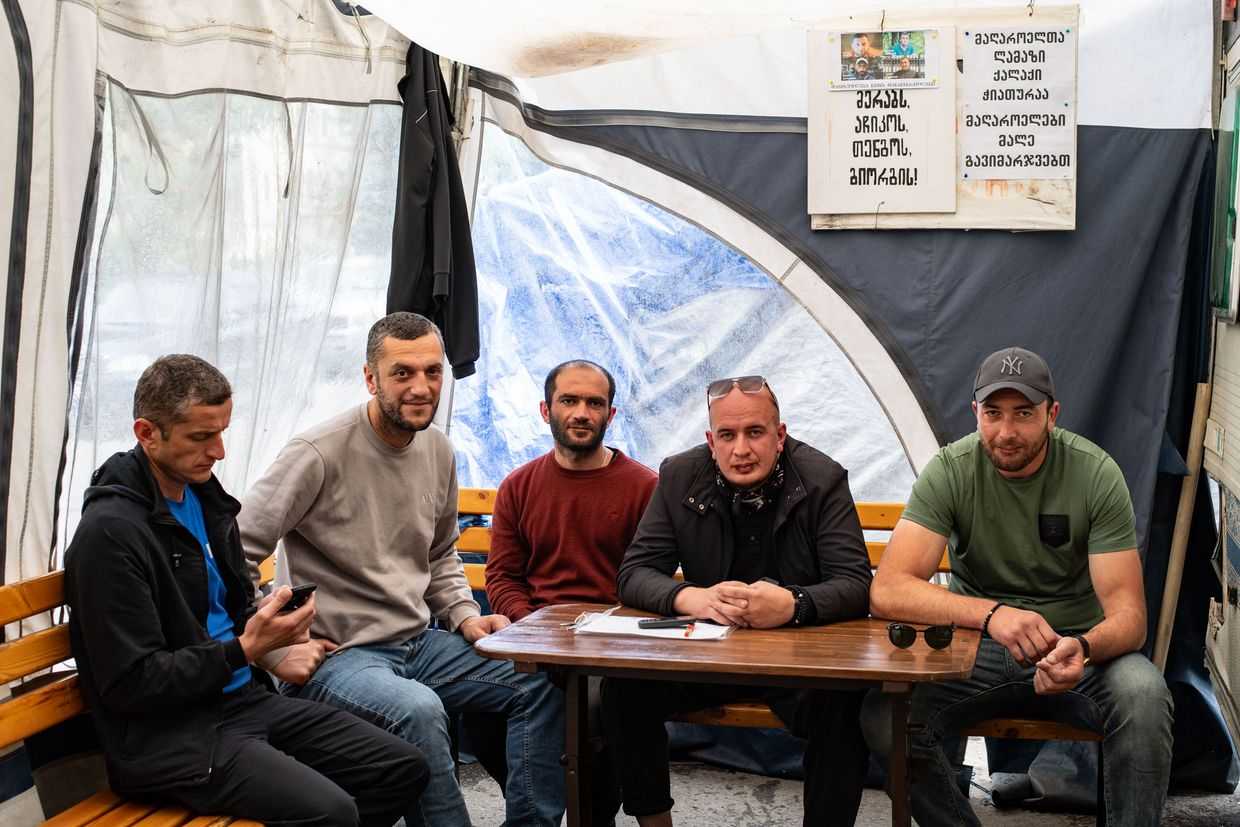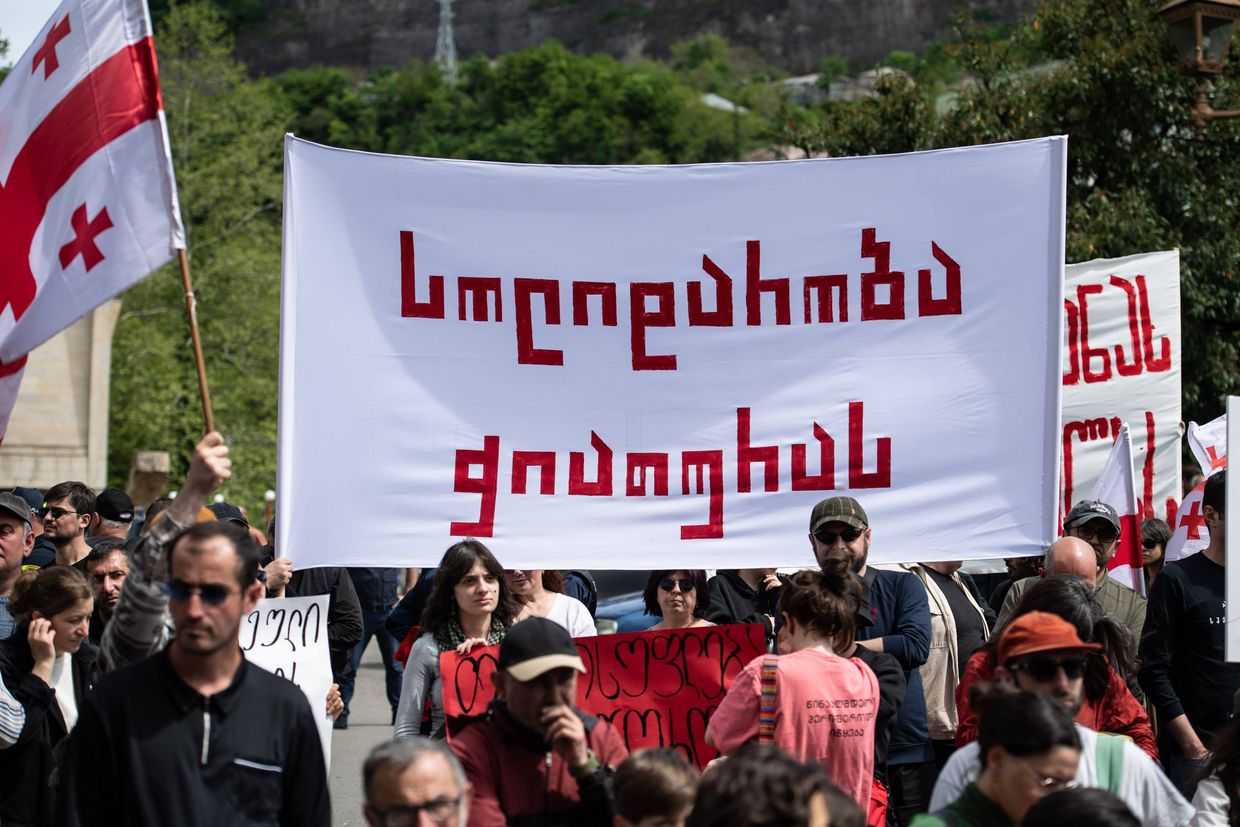
In the Georgian mining community of Chiatura, one village is literally falling through the cracks. Itkhvisi is the second settlement in the area to begin to collapse in recent years, yet mining company Georgian Manganese denies any connection to the tunnels running below.
‘Giant cracks appeared near the village and started moving towards the houses’, says Teona, a resident of Itkhvisi. ‘Within two weeks, the walls of my house started collapsing. Yesterday part of the house completely collapsed’
Itkhvisi is a sleepy village in central Georgia overlooking the River Kvirila in the valley below. The approach to the village has become precarious, the soil collapsing underfoot. Massive cracks scar the road as nearby the soil continues to shift daily, threatening to make the entire village uninhabitable.
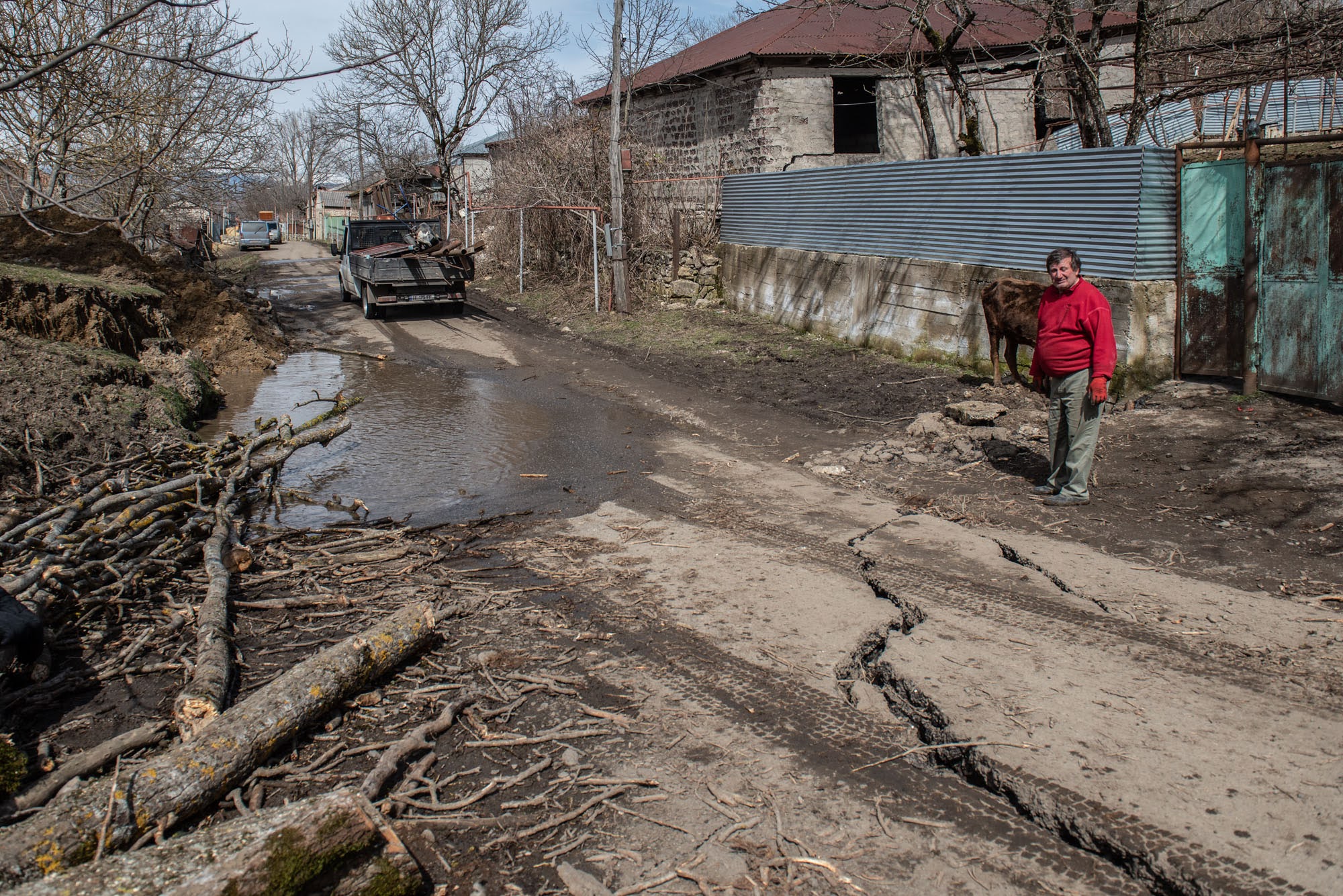
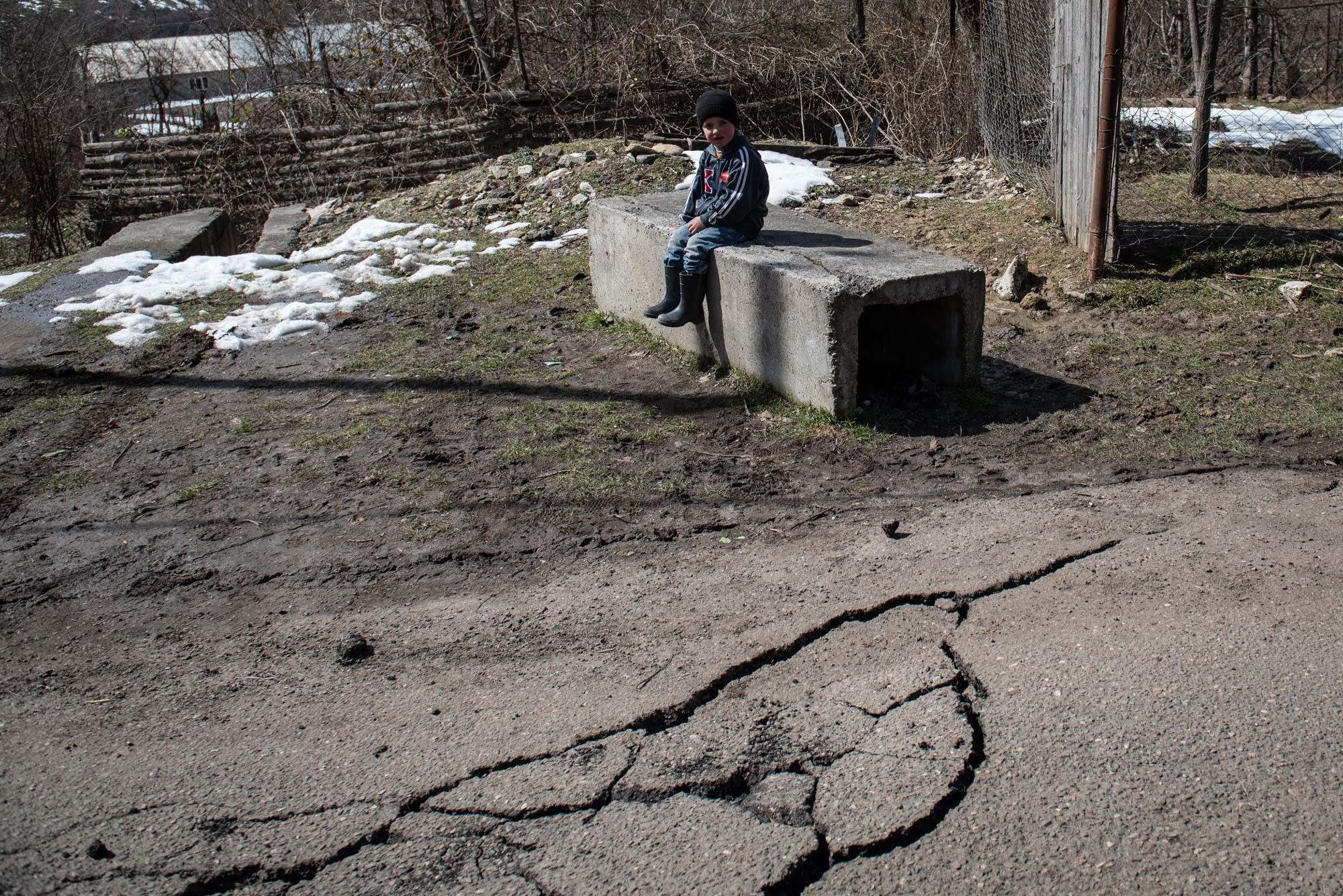
At least 14 houses have now partially or fully collapsed in Itkhvisi, and people at almost every house are collecting their belongings and evacuating.
Teona says the cracks in her house began to appear just two weeks ago.
‘We left the house a few days ago, but my father-in-law didn’t want to leave. We barely managed to convince him yesterday, there was no other way’, she says.
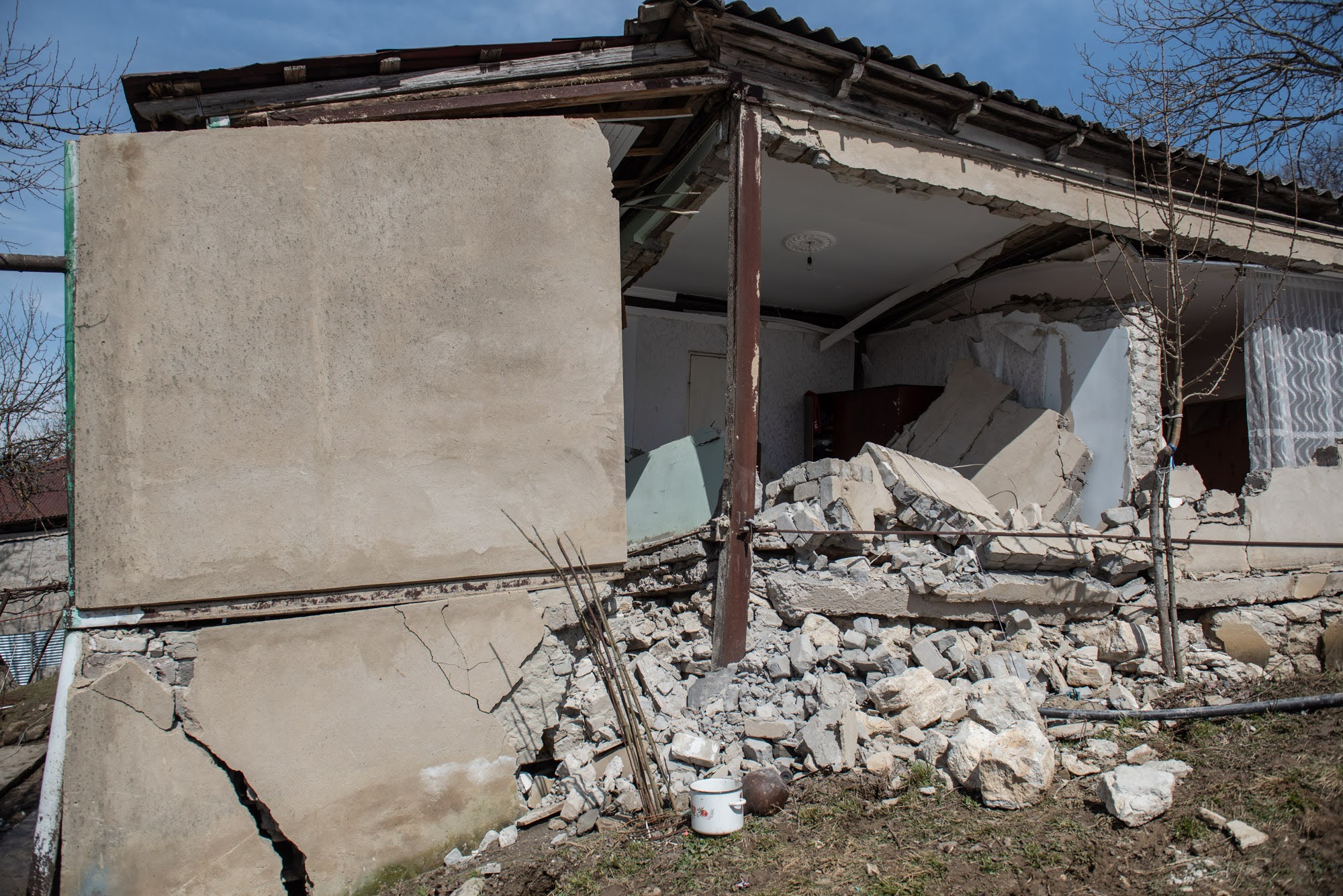
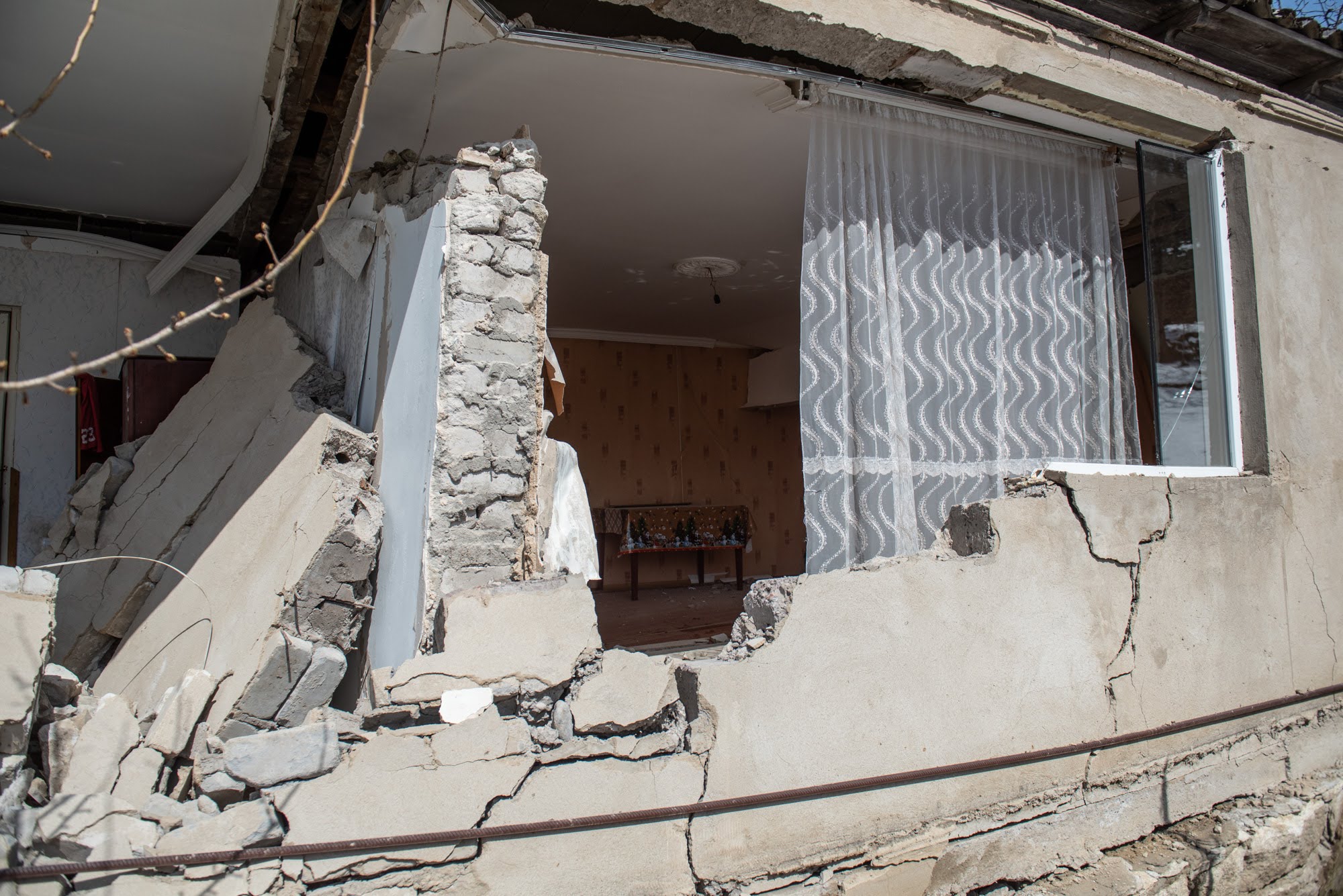
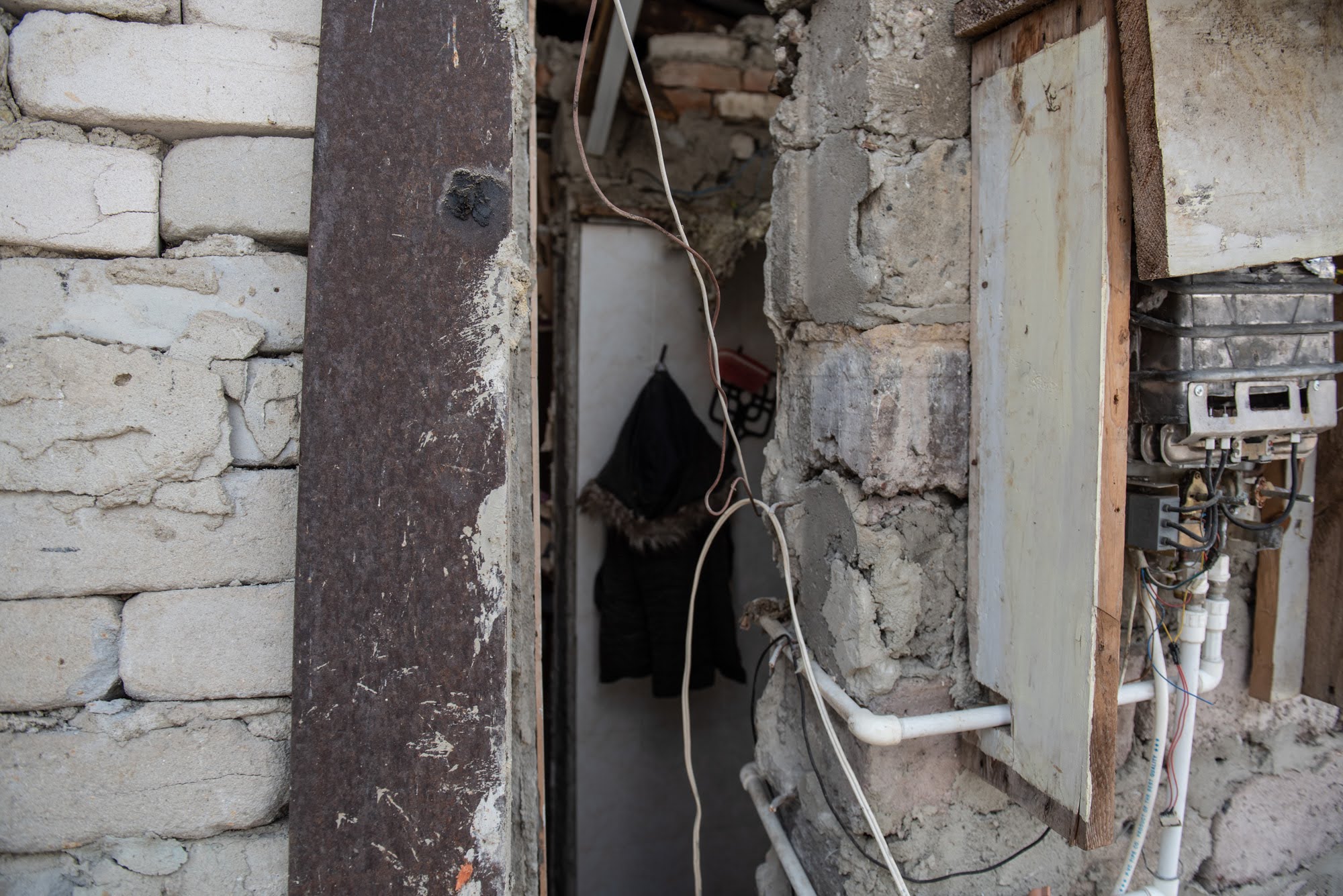
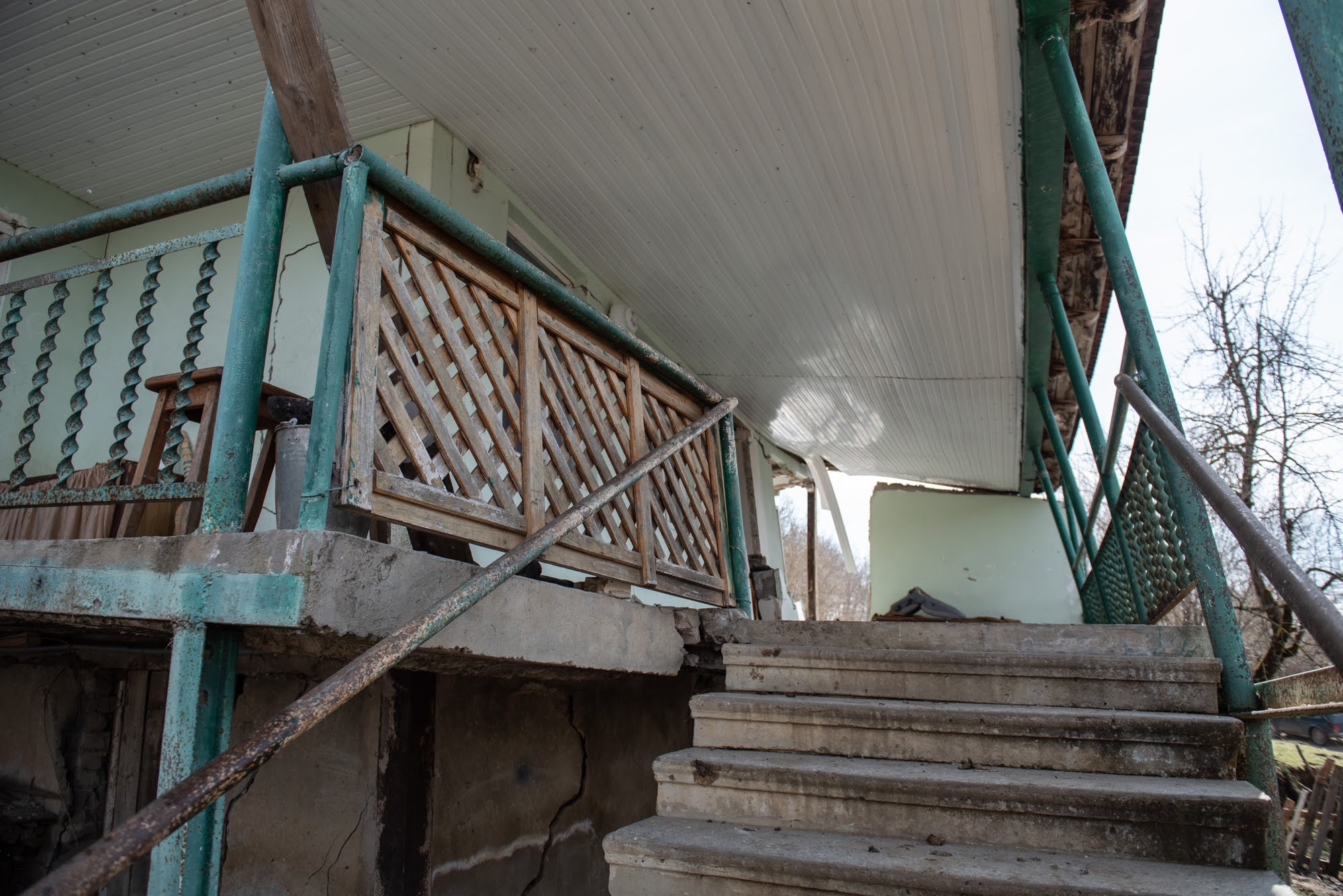
She and four other members of her family are now living in a rented flat in the nearby town of Chiatura.
The Megrelishvilis’ house was among the first to completely collapse. When the cracks began to appear two weeks ago, Manana Megrelishvili says that she and her husband decided to cut the electricity and gas to the house.
‘I feared there would be a fire, but look, the whole house is gone. First, it collapsed, then the remains started going down together with the soil’, says Manana, sitting on a chair at the entrance of her former house,
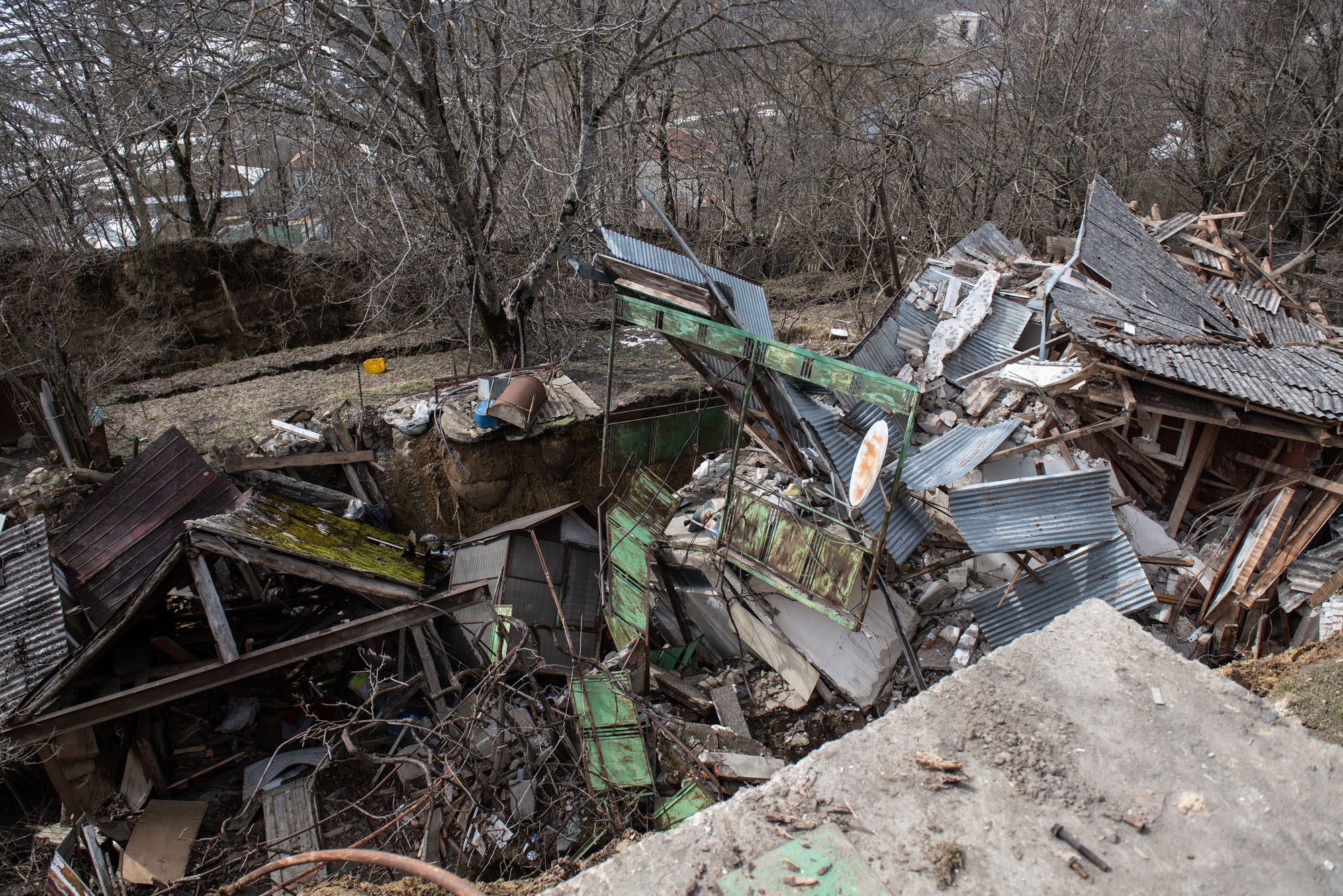
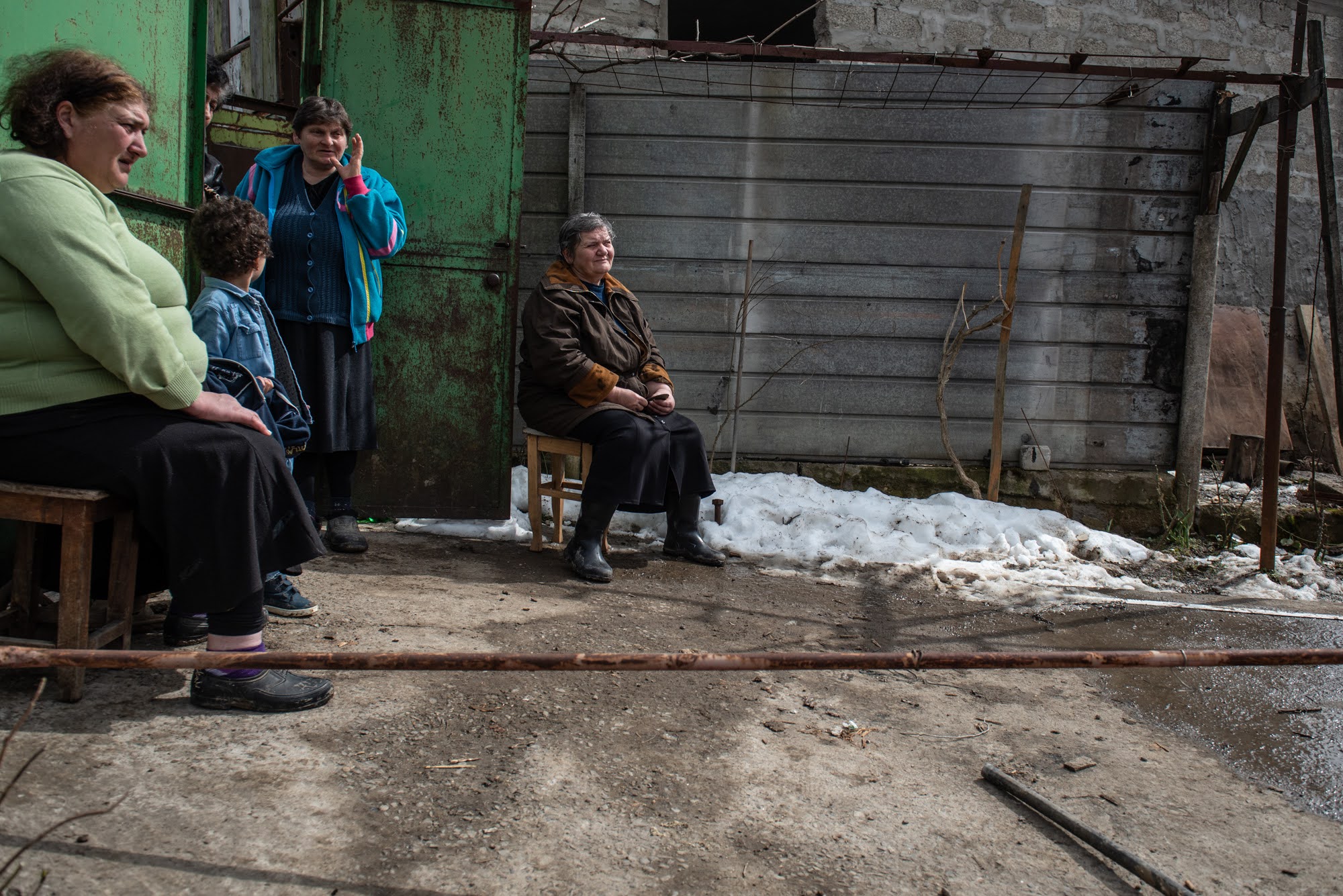
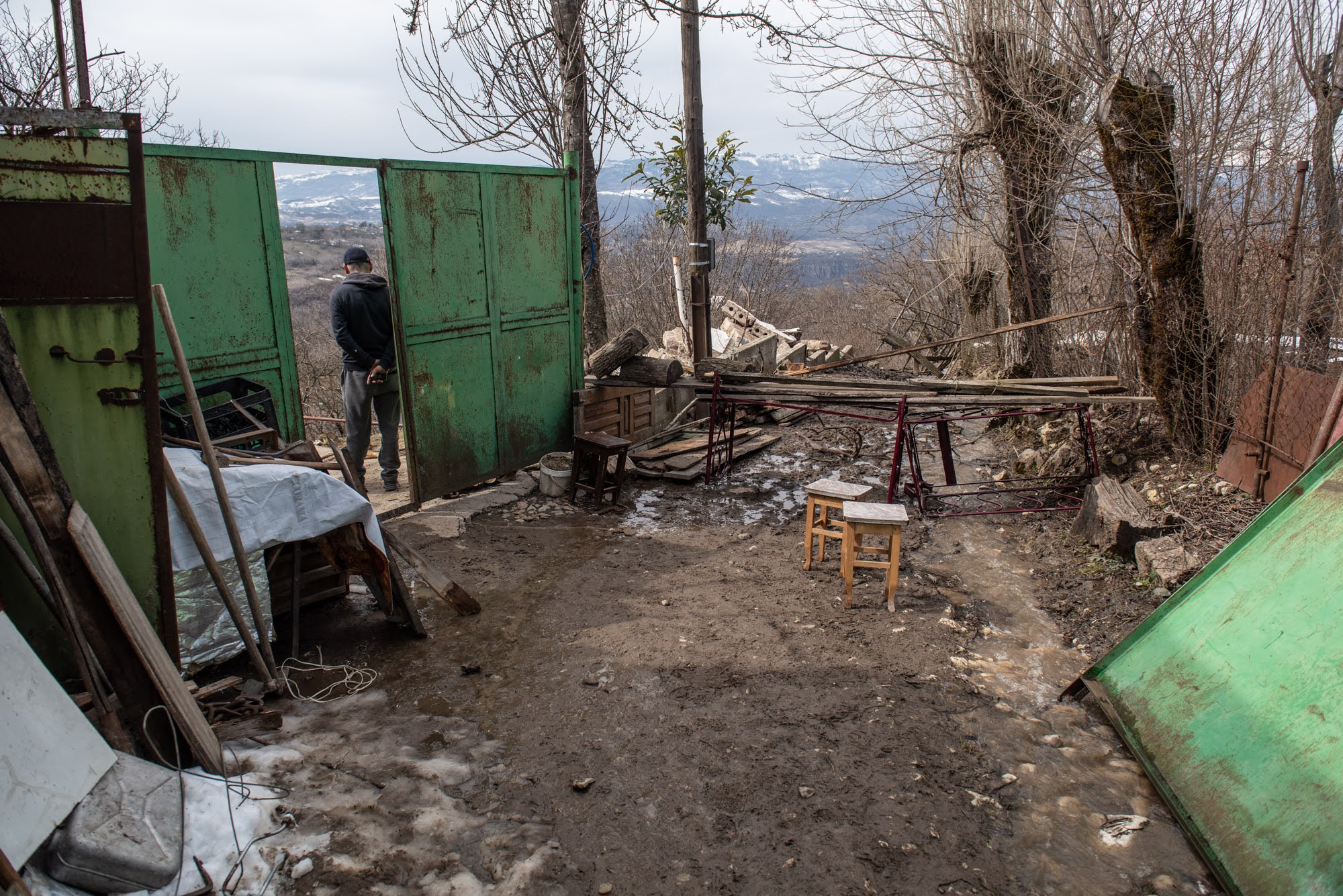
‘If you listen carefully, you can hear the sounds even now of everything sinking. This place looks so different now, as if I haven’t lived here for decades. I can’t recognise it at all’, she says, speaking through the tears.
This house stood still amd a family lived in it two weeks ago. It’s gone, as well as neighbouring houses. pic.twitter.com/UTsL0M33wf
— Mariam Nikuradze (@mari_nikuradze) March 30, 2022
A Mining company defiant
While local residents are certain that the collapse of their village is the result of the nearby manganese mines, Georgian Manganese, the company which operates the mines, says otherwise.
Company spokesperson Tamar Khurtsia told OC Media that since the company took over the mines in Chiatura in 2007, they have never extracted ore under Itkhvisi’s populated area. She said that the Itkhvisi Mine was operating as usual, but that this was ‘quite far’ from the village.
‘The damage in Itkhvisi is not caused by ore extraction, this was probably caused by a landslide’, she said, adding that a special commission was studying the cause.
The company also released a statement suggesting the issue may be the result of extraction in the 1980s and 1990s.
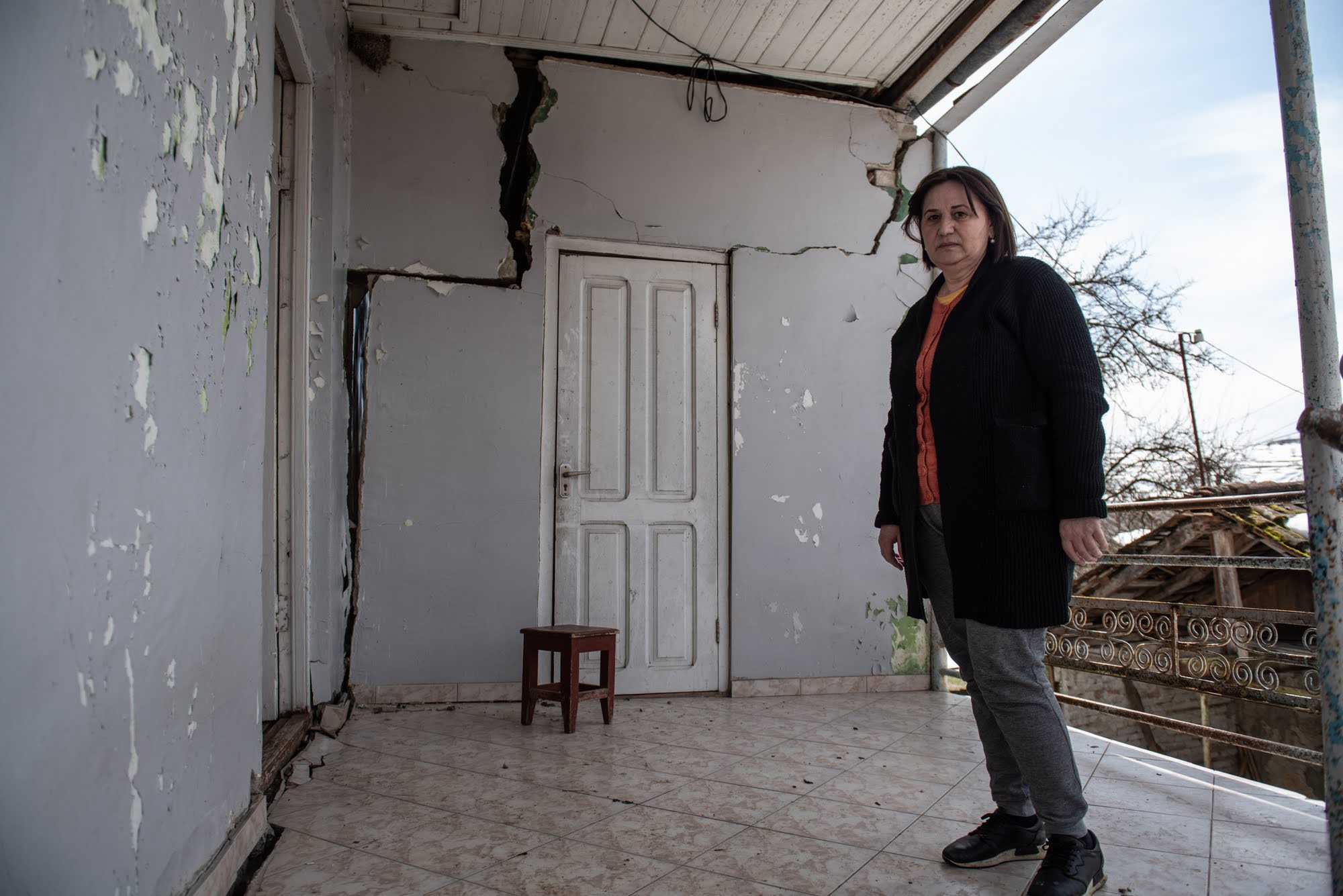
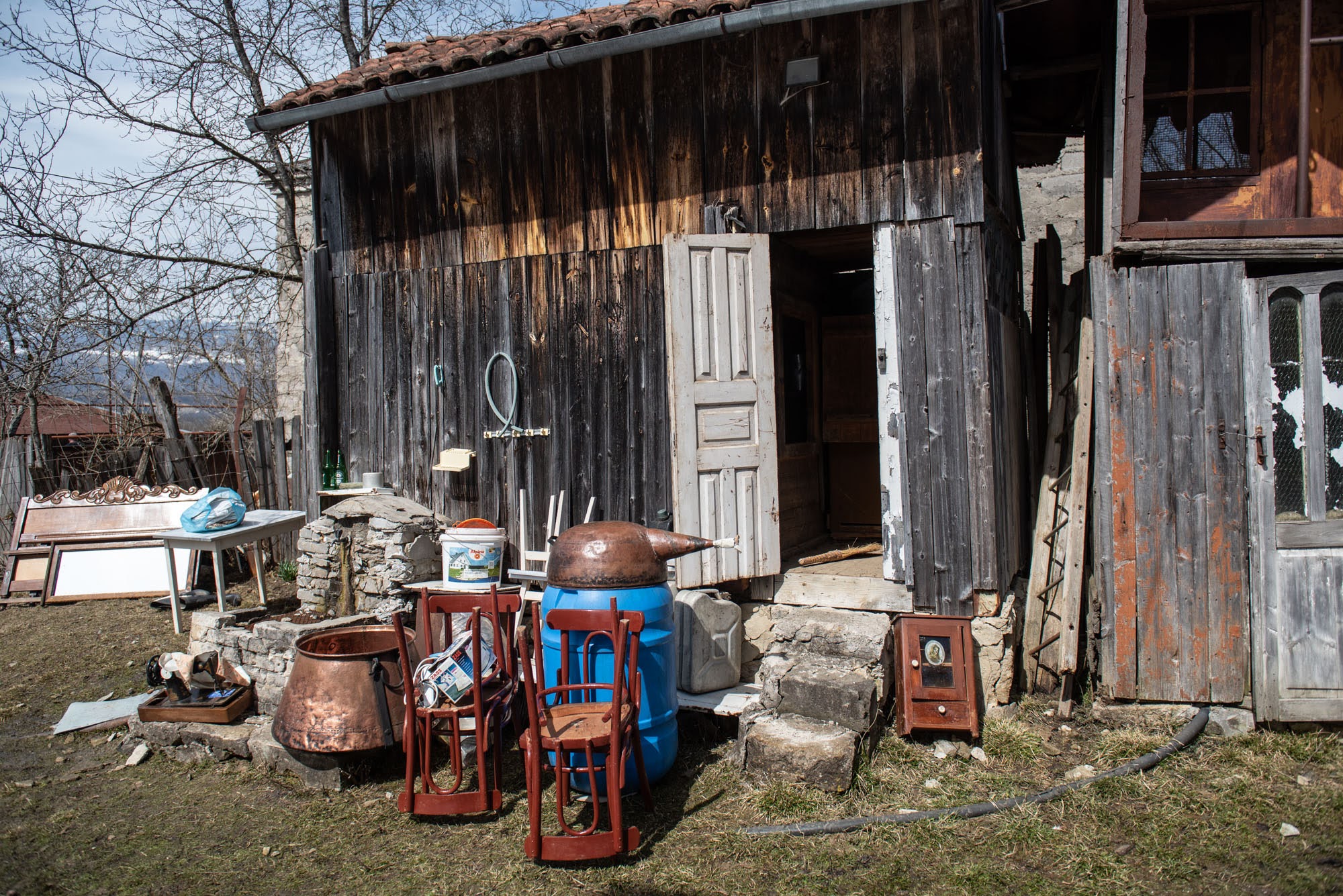
But the mention of the word ‘landslide’ angers local residents, who are convinced that the company is attempting to hide that they are still extracting ore under Itkhvisi.
Nino, another resident of Itkhvisi, says that she and her neighbours hear the sounds of explosions at night.
After suffering through sleepless nights for the past two weeks, as the house creaks under the strain of the earth collapsing beneath it, Nino is also temporarily moving to a rented flat. She fears her house may collapse any day now.
The Trade Union of Metallurgy, Mining, and Chemical Industry Workers of Georgia has said that Georgian Manganese did not outright deny responsibility in their conversations with the company.
‘They said that [the situation] is dire indeed’, the union’s head, Tamaz Dolaberidze, told OC Media. ‘When I asked them if they thought Georgian Manganese was the reason behind the damage, they told me they can’t deny the responsibility of the company at the moment. They also think the specialists should carefully study the topic.’
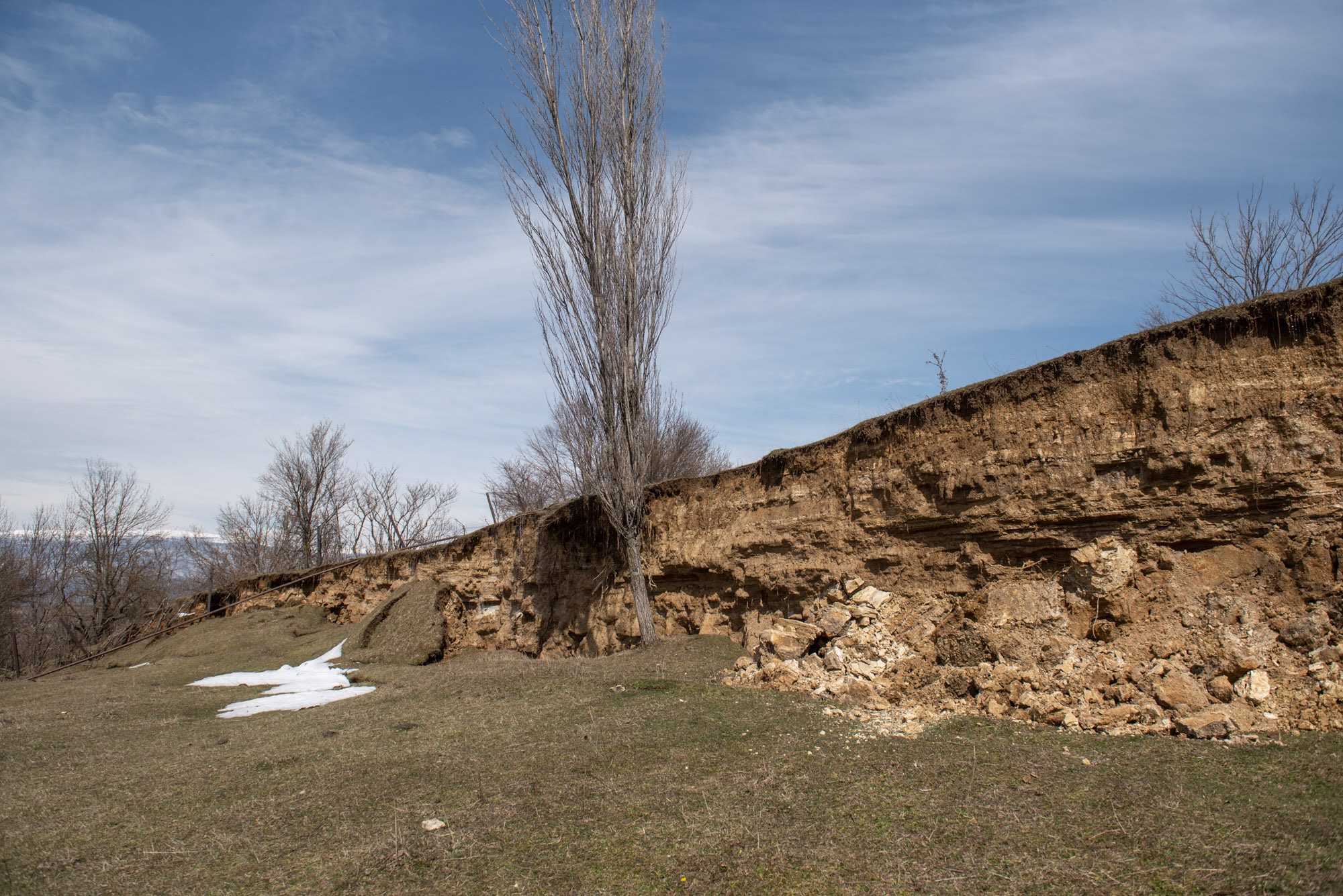
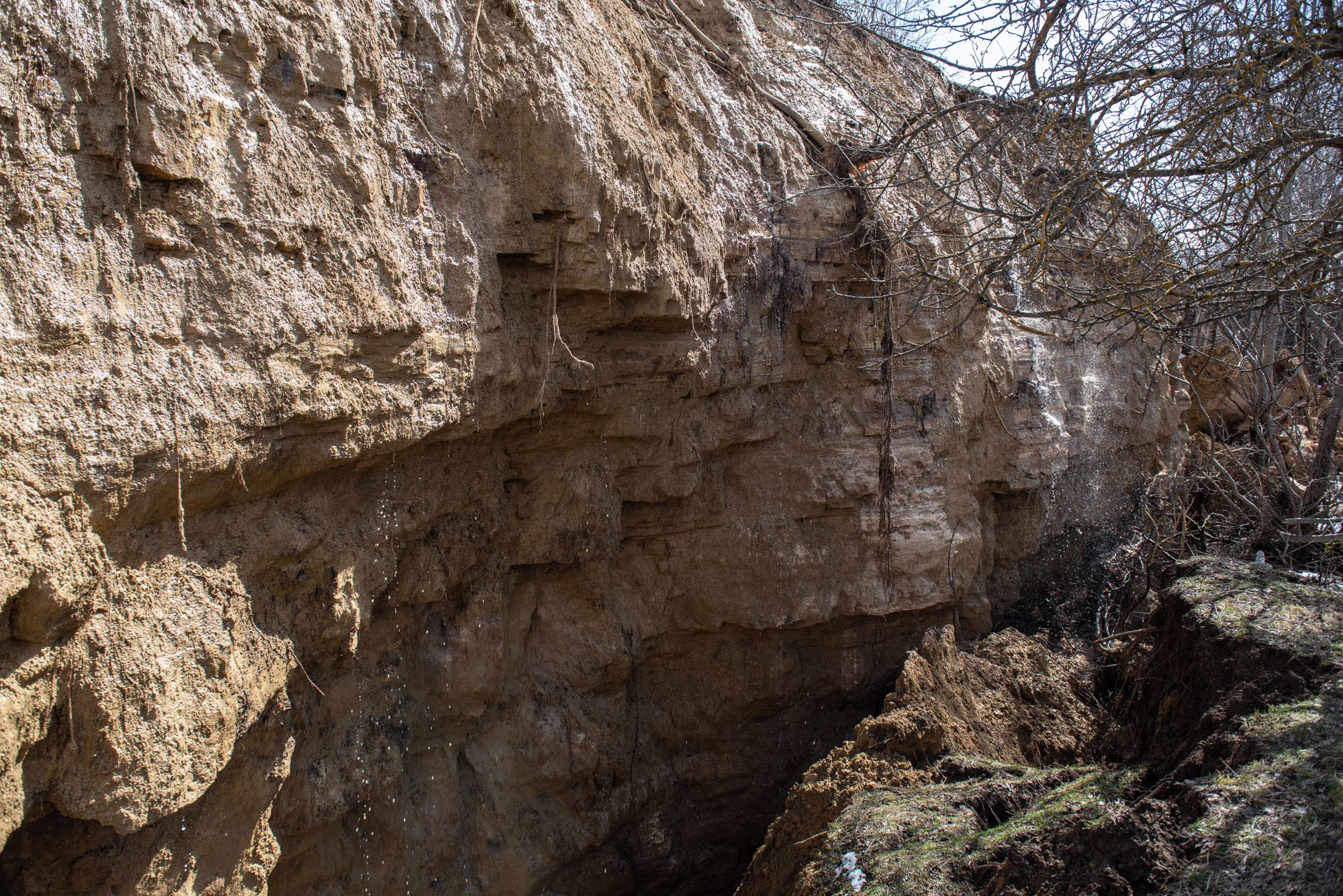
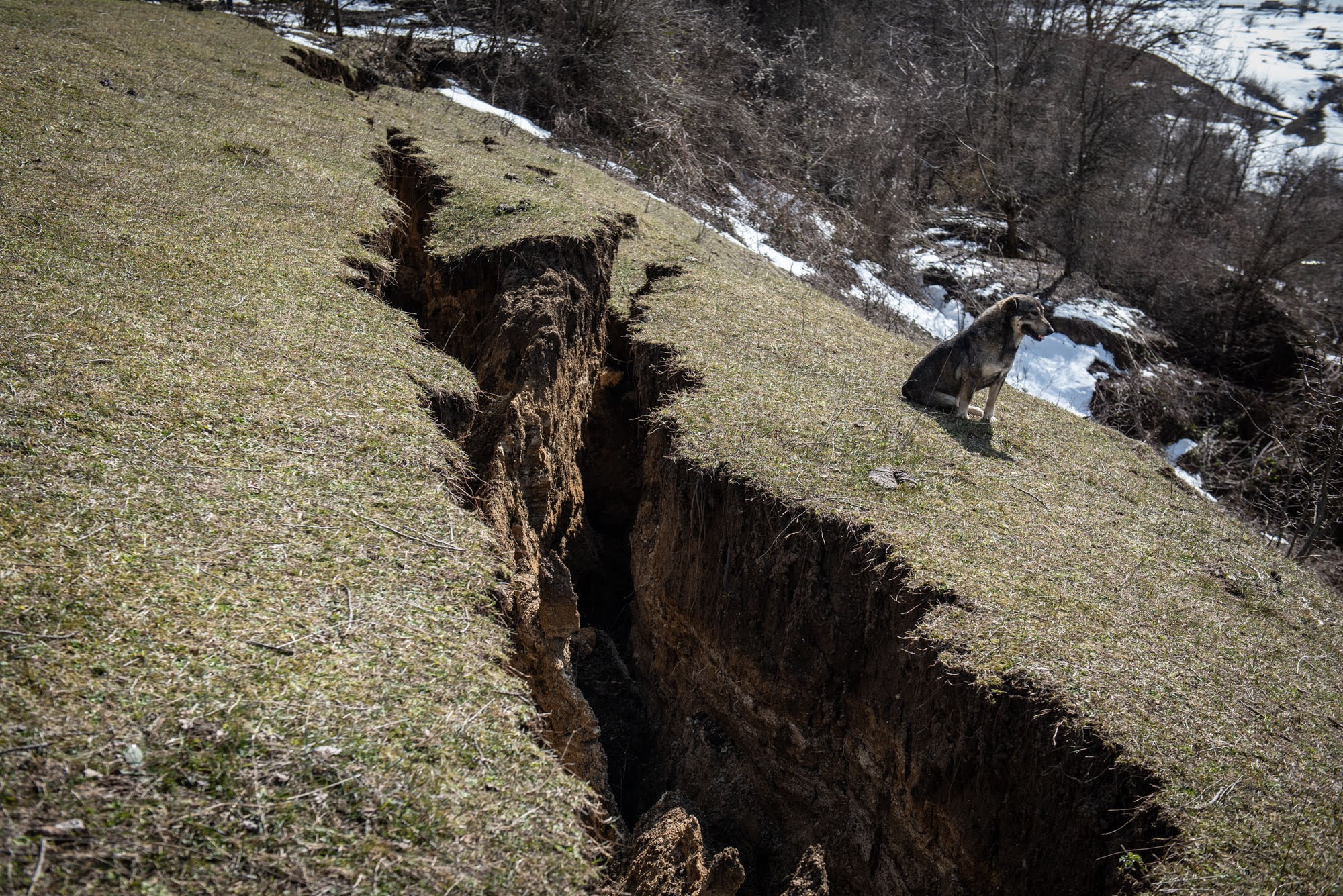
Itkhvisi is not the first village in the area to have seen catastrophic subsidence in recent years. In 2019, residents of Shukruti began to protest demanding compensation after their houses began to collapse.
After over a year of protesting, including a dry-hunger strike, villagers sewing shut their lips, and allegations of blackmail against Georgian Manganese, the company finally caved and agreed to pay compensation.
[Read on OC Media: In pictures | Lips sewn shut in Chiatura’s sinking village]
However, Giorgi Neparidze, one of ten families to have been compensated, told OC Media that the promises made by the company had still not been completely fulfilled. He said Georgian Manganese was transferring their compensation piecemeal, and that the agreement they reached would anyway not apply to any new damages to emerge.
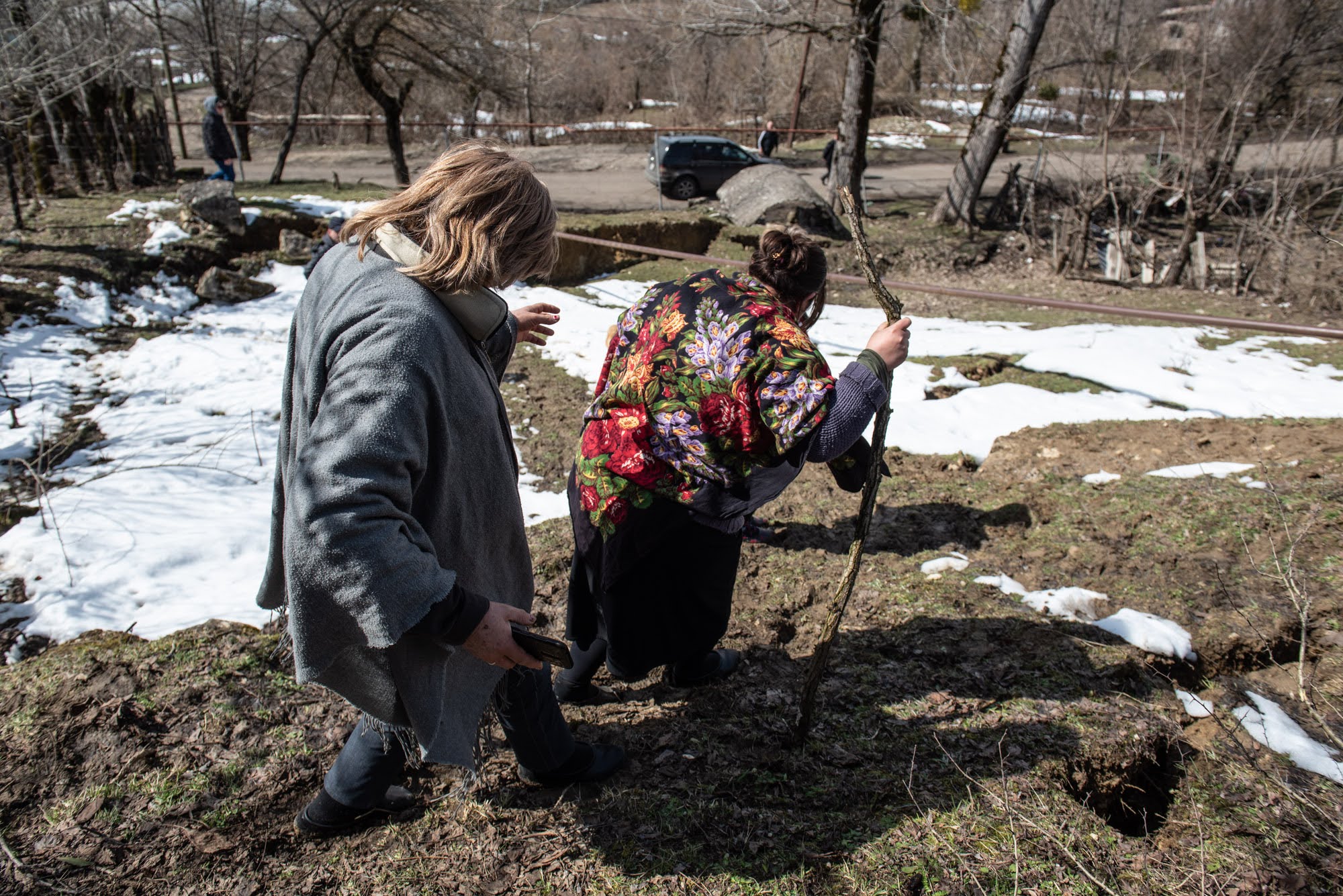
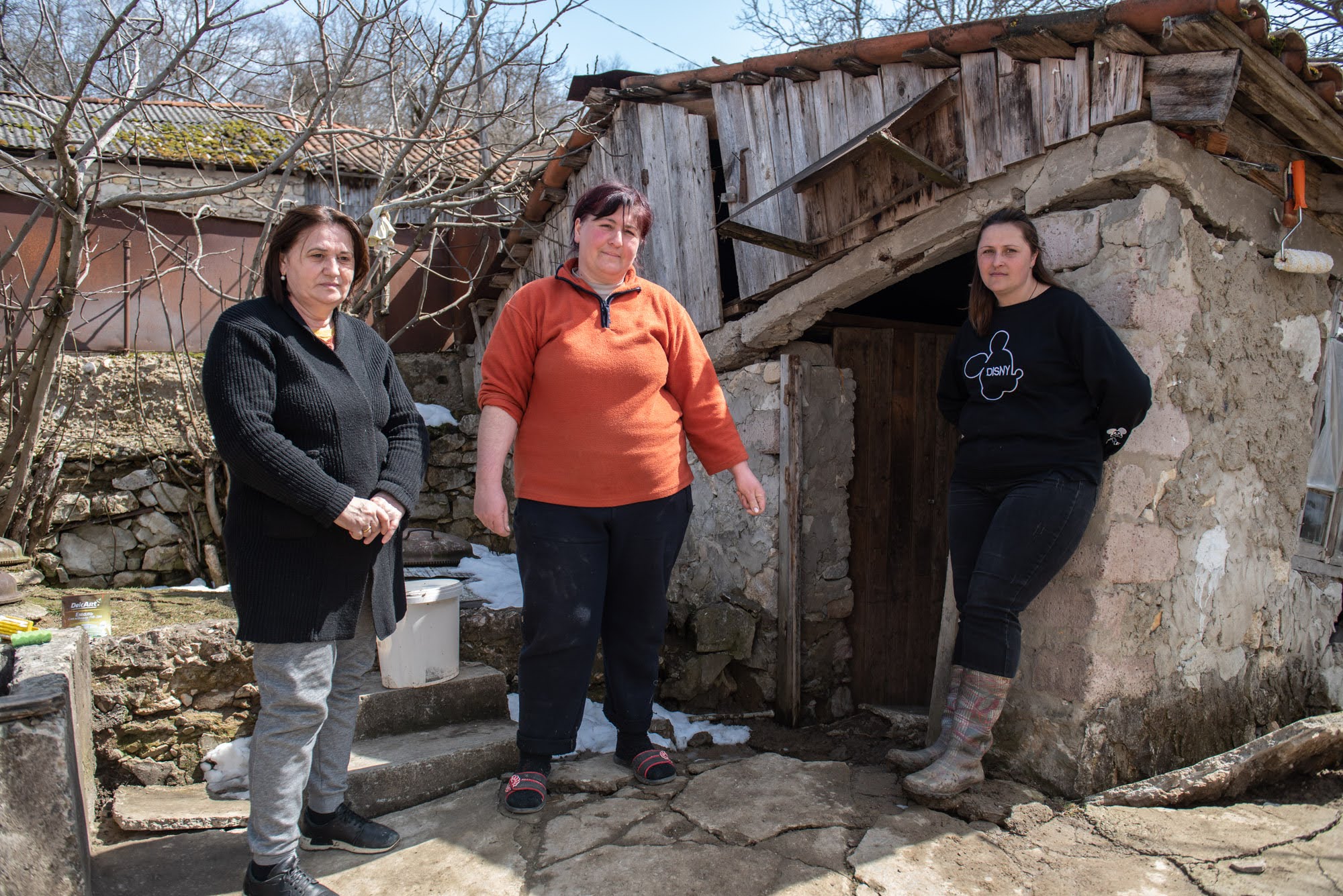
Where next for residents of Itkhvisi
For residents of Itkhvisi, the prospect of compensation is still far off.
Zviad Shalamberidze, the State Representative in Imereti, told the journalists while visiting Itkhvisi that a group of geologists was currently studying the situation to determine ‘how safe it is to live in Itkhvisi’.
For now, Chiatura City Hall has offered to pay the rent of families whose houses are no longer habitable, but several families expressed uncertainty about how long this will last.
The City Hall publicised on their official Facebook page a visit to the village by Mayor Givi Modebadze, replete with photographs of him inspecting the damage. However, the mayor’s office did not respond to our requests for an interview.
The Georgian Ministry of Economy, meanwhile, told OC Media that they were not involved in the processes in Itkhvisi, redirecting us to the City Hall.
A common fear expressed by local residents is that even if the company or the government provided compensation, it was unlikely to be enough to buy a replacement home.
‘There is not even solid ground to build a new house on, where will we go, where will we live after 40 years of living here?’, one local resident asked in frustration.
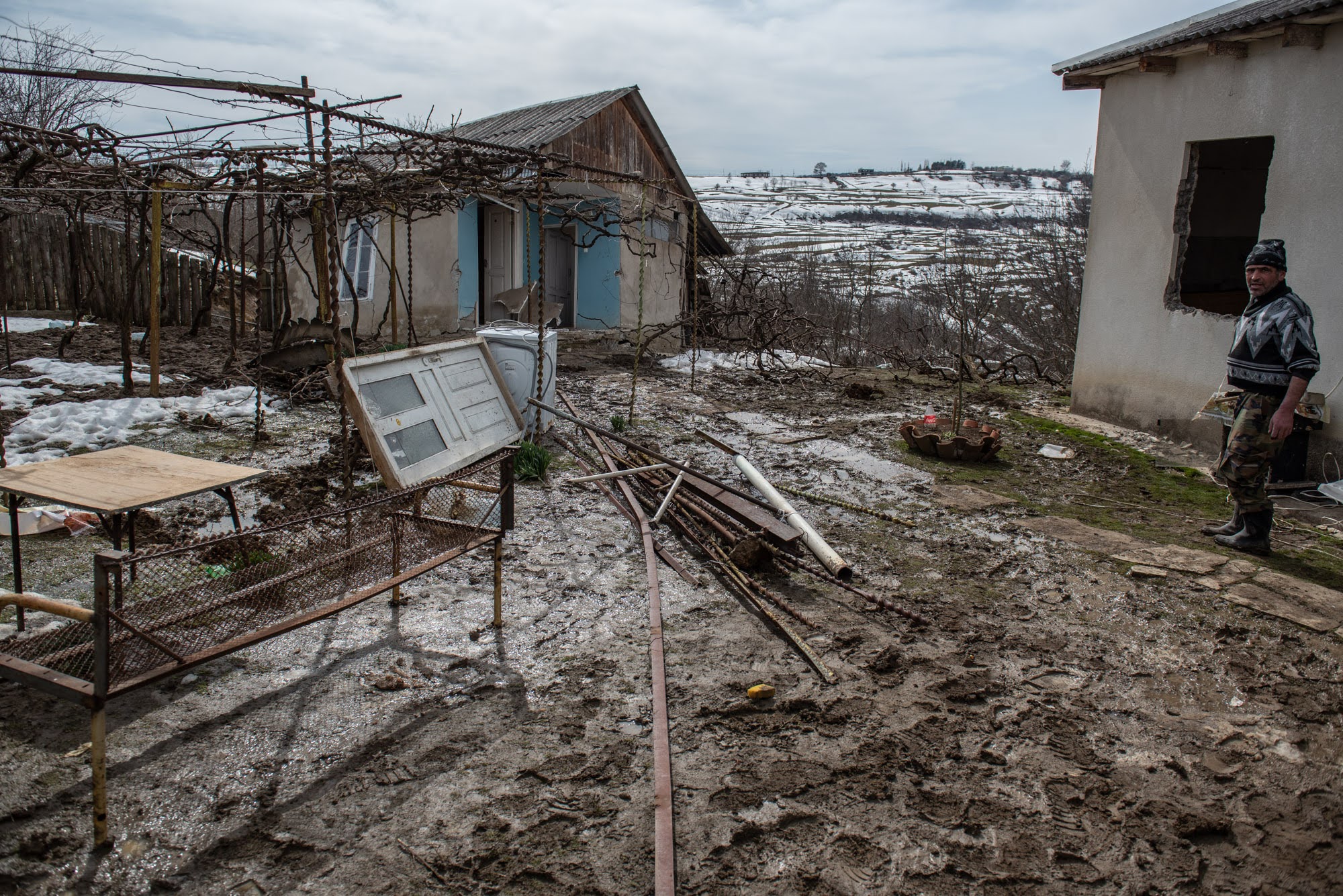
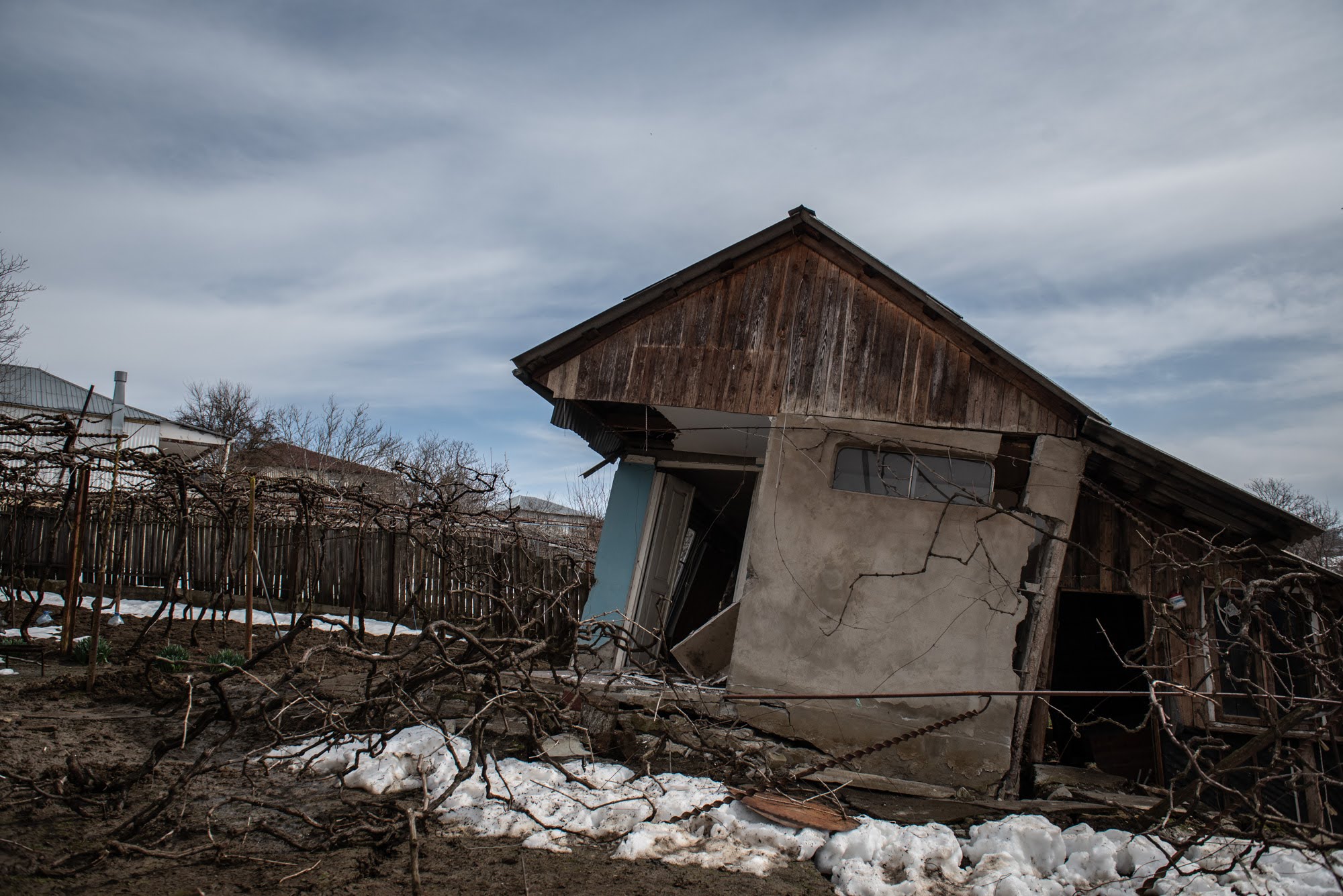
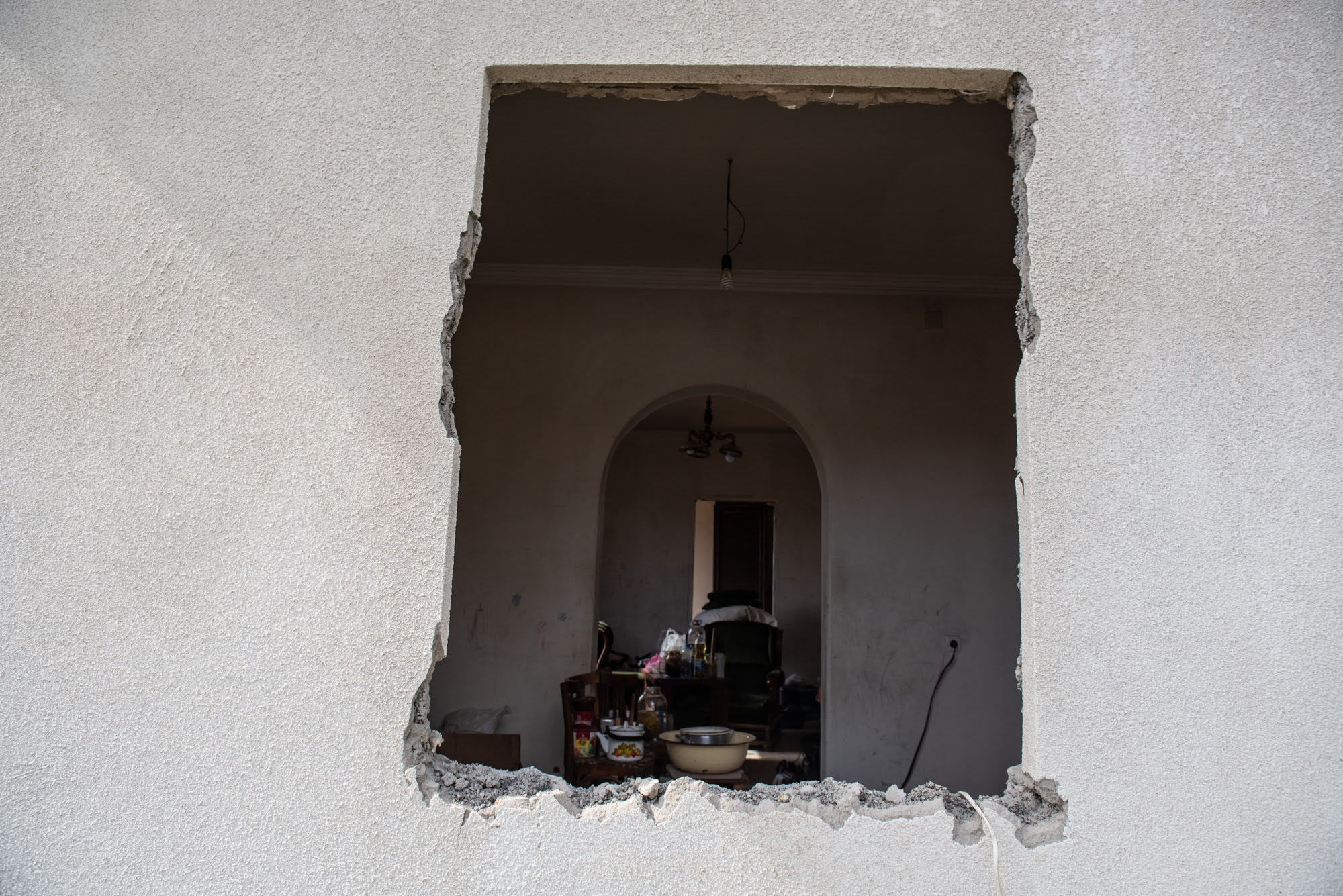
Boris Megrelishvili, who is now evacuating the village, says he feels most sorry about his vineyard.
‘It took years of work’, Boris says. ‘People were living on the fruits and vegetables growing here, what will we do in rented flats?’
